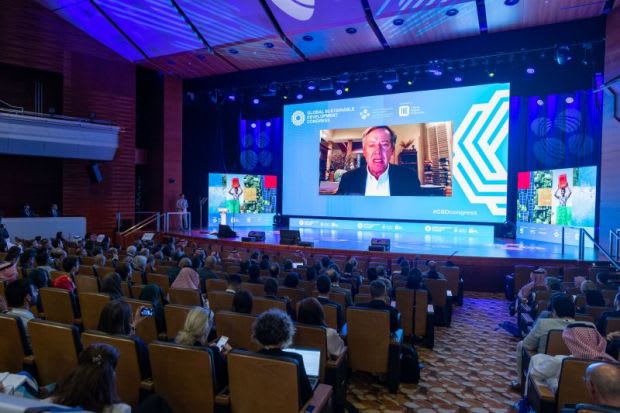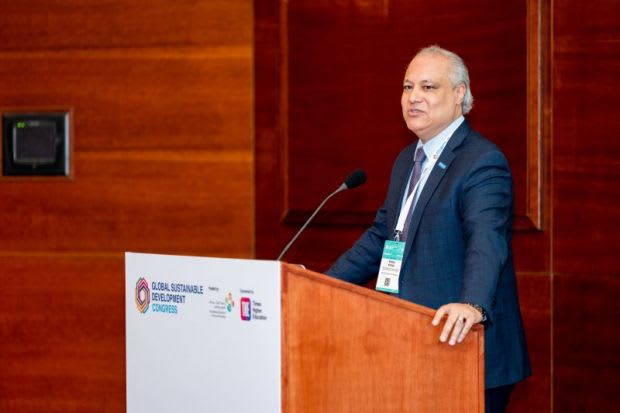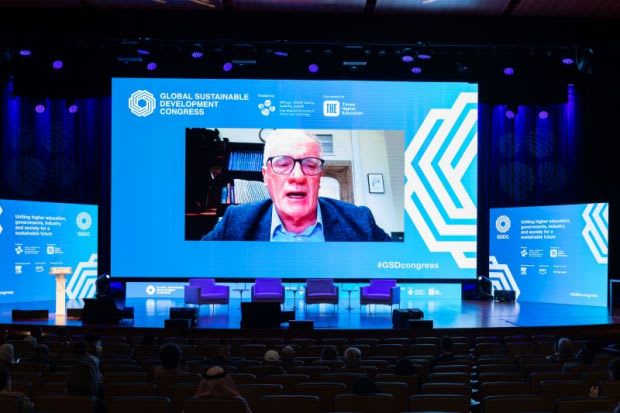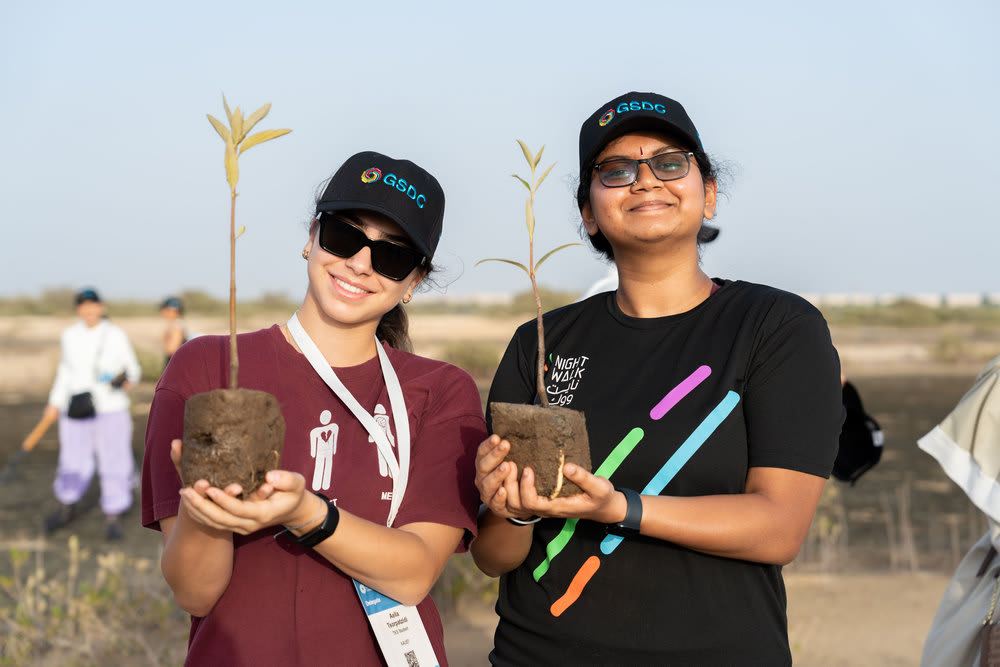- Sustainable health and demography
- Sustainable energy and industry
- Sustainable environment
- Sustainable cities and communities
Uniting higher education, governments, industry and society for a sustainable future
Pre-congress day: 29 May 2023
Congress: 30 May – 1 June 2023
Thuwal, Saudi Arabia
The Global Sustainable Development Congress brought together 1,600+ global thought leaders and innovators to discuss urgent solutions to the sustainability emergency.
Challenging the usual thinking on what higher education, governments, businesses and society must do to help society meet the United Nations’ Sustainable Development Goals (SDGs), the congress was a call to action for global universities to pivot their educational, research, innovation and outreach programmes towards tangible outcomes.
Delegates from around the world immersed themselves in sessions aligned with the societal transformations needed to achieve the SDGs.
Agenda themes:

The event featured a pre-launch reveal of the THE Impact Rankings to take a closer look at performance across popular SDGs and learn from best practice around the world, followed by the live reveal of the full ranking on 1 June.

Time for universities to be ‘heroic’ on sustainability, says Crow
Academy is ‘at the heart’ of humanity’s failures to get to grips with the scale of the issue, warns the president of Arizona State University.

Work together to ensure refugees can access HE, UN adviser says
Refugee participation in tertiary education rises from 1 to 6 per cent in four years but much more needs to be done, congress hears.

Co-create knowledge with those on climate front line, says Halliday
Transdisciplinary solutions are vital for humanity to overcome the challenges it faces, according to the founding dean of the US’ first climate school.
|
The Global Sustainable Development Congress is designed to inspire strategic change for universities committed to supporting the SDGs and to offer practical, tangible plans for transformation. It adds human context to the data, allowing delegates to work creatively together to formulate action points and build partnerships. – Duncan Ross, chief data officer, THE |
|
There is a broad consensus that a global human and ecological catastrophe could precipitate in just handful of years, critically exacerbating sustainability challenges. Our world is in a state of crisis that imperils all of humanity, and universities throughout the world must act. We must cease to be exemplars of unsustainable practices and become the transformative enablers of sustainability for others. – Dr Tony Chan, president, KAUST |

Carbon offsetting
THE collaborated with KAUST's Health, Safety and Environment department and the Sustainability Office to alleviate the carbon equivalent generated by the travel of delegates and speakers by planting mangroves.
Also known as ‘blue carbon’, mangroves typically sequester carbon two to four times faster than mature tropical forests and contain the highest carbon density of all terrestrial ecosystems.
Each mangrove tree planted removes over 308kg of CO2 from the atmosphere over the growth life of the tree.


